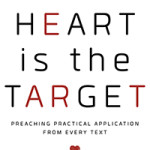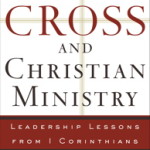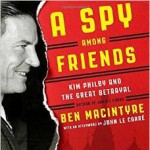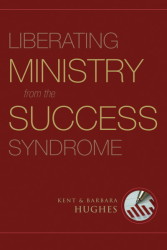
–This post is adapted from my recent sermon, “The Light of God,” on 1 John 1:5-10.–
In 1 John 1:5-10 the apostle’s loving boldness is on full display as he “launch[es] us into,” according to David Jackman, “one of the greatest theological statements of the whole Bible.” It’s a statement we want to feel as the pulsating engine behind the first half of this book, and maybe even the book as a whole. It’s telling us what must be true about our life together if our joy is indeed going to be complete in our fellowship with Christ.
The Foundation of Light
In 1:5 John says Jesus gave me a message to proclaim, a message about who God is. If you could announce to the world one characteristic of God, what would it be? Fill in the blank in this sentence, “God is _______.” What came to your mind? God is love, compassionate, gracious, sovereign, good? Notice as 1:5 continues what Jesus, through John, wants us to know – first and foremost – about God as 1:5 continues, “God is light.” How many people today revel in the proclamation that “God is light”? What does it even mean that God is light?
The Old Testament is full of references to the light of God. And ordinary the light of God refers to His salvation, revelation, and separation. And it’s that third facet John has in mind here, the separation of God from everything in the universe. He is utterly and unalterably holy; “in him is no darkness at all.”
So God is the foundation of a fellowship of light, and now what John is going to do in 1:6-7 is give us a few “Implications of Light.”
The Implications of Light
In studying this passage throughout the week I began to feel like a spectator at a theological tennis match. To follow John in the rest of the passage means our heads must be on a swivel as he keeps bouncing back and forth between the negative claims of the false teachers and the positive realities of a people living in light.
And notice how the doctrinal ball falls in their court in 1:6, where the apostle says, “If we say we have fellowship with him while we walk in darkness, we lie and do not practice the truth.” The false teachers were like spiritual double agents; they claim allegiance to God, but actively live for the kingdom of darkness. John minces no words here, “A person who lives unreservedly, unrepentantly, and habitually in darkness cannot be in fellowship with the God of light, and are lying if they say otherwise.” It’s a shot across the bow, a warning, to any who would profess to be a Christian while living as if Christ hasn’t changed their life.
We should also see from 1:6 that what we believe about sin shows what we believe about God. Whenever sin is flippantly addressed, you have a God flippant about sin; a God unknown to the Bible. But wherever sin despised and with God’s help put to death, you have a God who seeks the death of sin. In what ways does your view of sin reveal your view of God?
See now how John bounces from the negative to the positive in 1:7, “But if we walk in the light, as he is in the light, we have fellowship with one another, and the blood of Jesus his Son cleanses us from all sin.” 1:7 gives us two implications for living in the light as God is in the light.
Implication #1: We have corporate fellowship. You’d expect – wouldn’t you? – John to say, “If we walk in the light, as he is in the light, we have fellowship with Him.” But John says we have fellowship with “one another.” Many commentators call the false teachers the “secessionists” because they broke away from the fellowship; they went to pursue godliness on their own. But John is saying that’s not godliness at all. It’s biblically impossible to have fellowship with God without having fellowship with one another. Do you recognize your need to consistently be in corporate fellowship with God’s people? The world will lure you to think things of earth are more important than gathering with the citizens of heaven. The Worm named Satan will tempt you to isolation, thinking you don’t need God’s people. But consistent fellowship with God’s people reveals the light of God and helps keep us in the light of God.
Implication #2: We have cleansed fellowship. “But if we walk in the light, as he is in the light . . . the blood of Jesus his Son cleanses us from all sin.” The language here is continually, a more literally translation would say His blood “keeps cleansing us from all sin.” One of my greatest fears in life is whenever Emily wants to get something from Ikea because self-assembly furniture is the bane of my existence. Especially when the set of little boy bunk-beds has hundreds of pieces that go into the construction of the edifice. So we spent one Sunday afternoon putting the beds together and painting them with an oil-based paint. When clean up time came regular tap water couldn’t wash away the point from our hands, something stronger was necessary to cleanse us from the stain. Such is the case when it comes to the stain of our sin.
If you aren’t a Christian, what will you do with the sin the Bible says stains your soul? It’s a stain of unbelief that will lead to death if it isn’t washed away. Good works can’t wash it away and superhuman effort can’t wipe it clean. What you need is the cleansing blood of Jesus. Jesus went lived a perfect life and so when He hung on the cross, He was as a spotless lamb led to slaughter. Jesus, the Lamb of God, shed His perfect blood in His death on the cross, to pay the penalty for your sin and cleanse you from all unrighteousness. The cleansing blood of Christ is offered to you, will you take it by turning from your sin and trusting in Jesus?
What can wash away my sin, nothing but the blood of Jesus . . .
Oh precious is the flow! That makes me white as snow.
What do you find most precious? What is most valuable to you? Wherever your mind floats in the free minutes of the day reveals what is precious to you. Oh may we increasingly find like John, and like Peter in 1 Peter 1:18, of supreme value to us! This is the ocean of grace in which our souls must swim as a church, let us jump in with joy. What ocean of power are you swimming in today?
So: a faithful church is a fellowship of light. God’s light is its foundation (1:5) and a corporate life constantly being cleansed by the blood of Jesus is what it means to walk in the light.
———————————————————————————————











